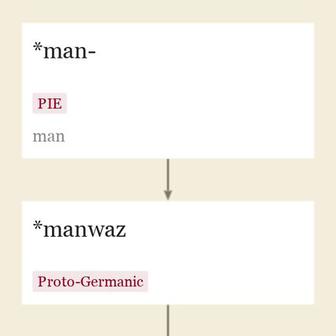watchman n.
also watch-man, c. 1400, "
Entries linking to watchman
Old English wæcce "
From c. 1200 as "
Also in Middle English, "
Military sense of "
The Hebrews divided the night into three watches, the Greeks usually into four (sometimes five), the Romans (followed by the Jews in New Testament times) into four. [OED]
On þis niht beð fowuer niht wecches: Biforen euen þe bilimpeð to children; Mid-niht ðe bilimpeð to frumberdlinges; hanecrau þe bilimpeð þowuene men; morgewile to alde men. [Trinity Homilies, c. 1200]

"
Sometimes connected to root *men- (1) "
Specific sense of "
Man also was in Old English as an indefinite pronoun, "
As "
Man-about-town "
So I am as he that seythe, 'Come hyddr John, my man.' [1473]
MANTRAP, a woman's commodity. [Grose, "Dictionary of the Vulgar Tongue," London, 1785]
At the kinges court, my brother, Ech man for himself. [Chaucer, "Knight's Tale," c. 1386]
updated on June 02, 2012
- intercoastal
- intercollegiate
- intercom
- intercommunicate
- intercommunication
- intercommunion
- interconnect
- interconnectedness
- intercontinental
- intercostal
- intercourse
- intercrural
- interdepartmental
- interdependence
- interdependency
- interdependent
- interdict
- interdiction
- interdisciplinary
- interest
- interested
- interesting
- interface
- interfacial
- interfaith